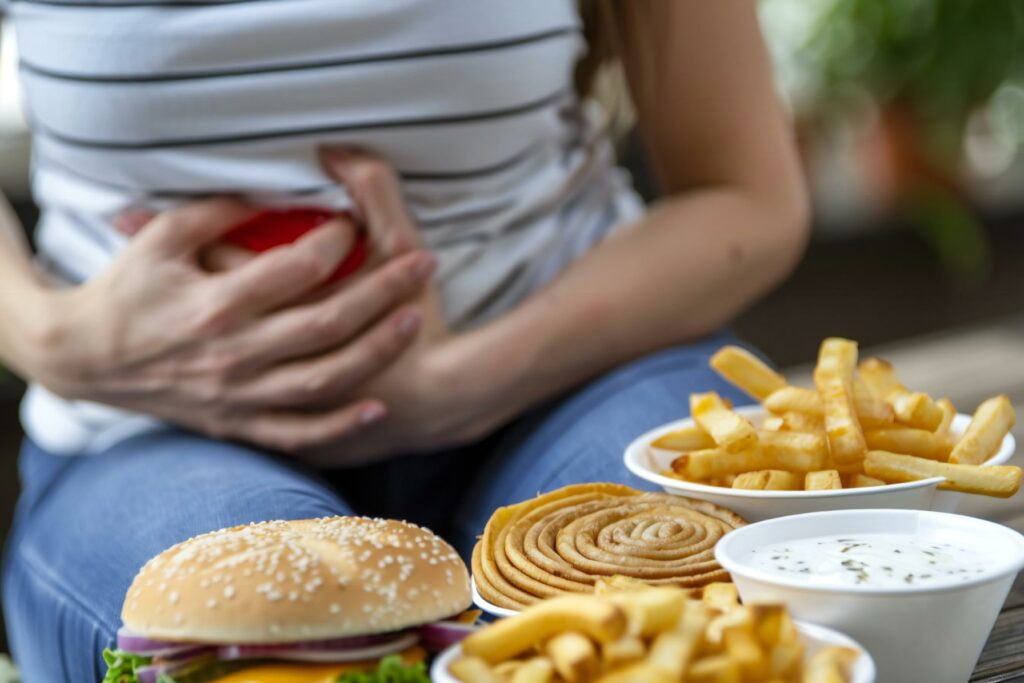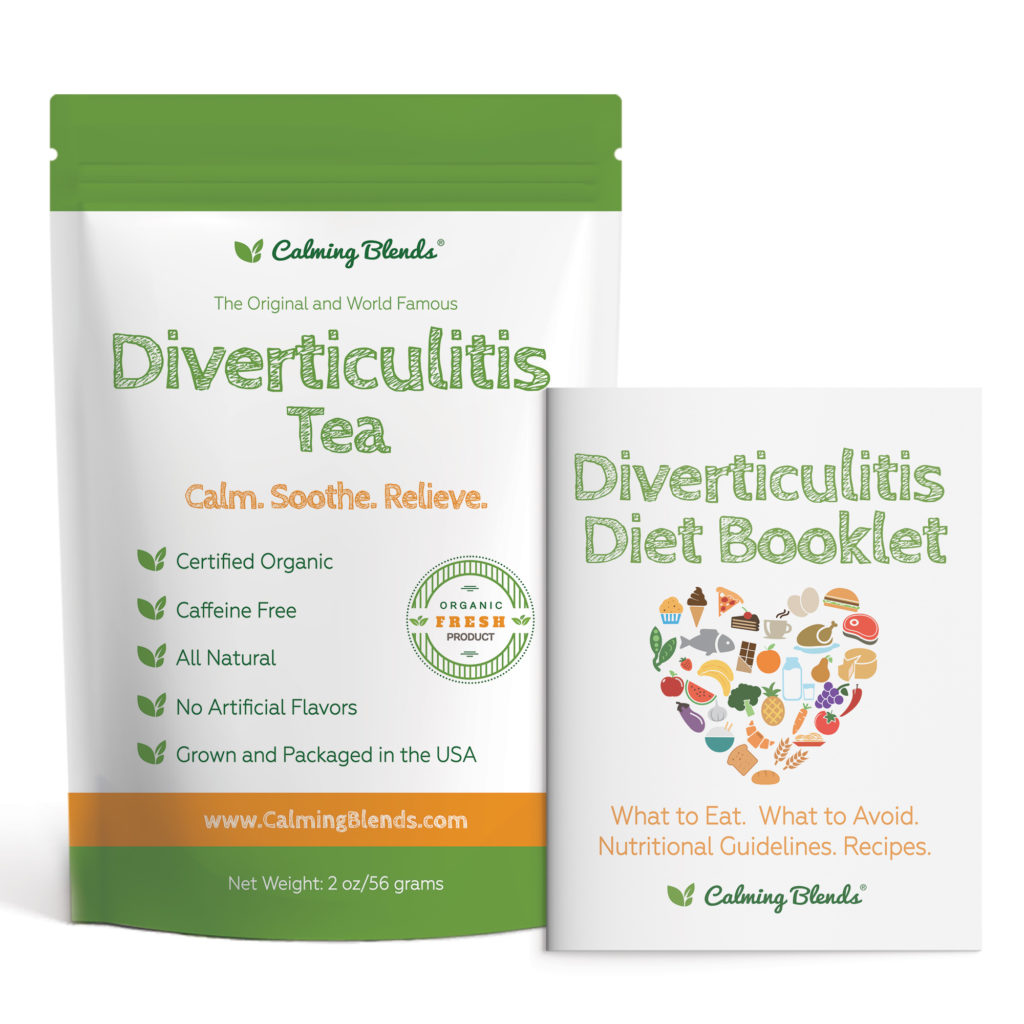Diverticulitis is a condition that occurs when small pouches (diverticula) that form in the walls of the digestive tract become inflamed or infected. Managing this condition involves a proper diet, which can help reduce flare-ups and alleviate symptoms. Knowing which foods to avoid—and what to eat instead—is essential to maintaining digestive health. In this article, we’ll explore ten foods to avoid with diverticulitis, suggest alternative options, and highlight the benefits of Calming Blends Diverticulitis Tea as a natural remedy.
1. Processed Meats
Why to Avoid: Processed meats like sausages, hot dogs, and bacon are high in saturated fats and preservatives, which can irritate the digestive system.
Alternative: Opt for lean meats such as chicken, turkey, or fish. Grilled or baked preparations are healthier options that are easier on the digestive tract.
2. Popcorn
Why to Avoid: The hulls of popcorn kernels can get trapped in the diverticula, potentially causing inflammation or infection.
Alternative: Choose puffed rice cakes or oatmeal as a safer snack alternative.
3. Nuts and Seeds
Why to Avoid: Whole nuts and seeds may become lodged in the diverticula, leading to irritation.
Alternative: Enjoy nut butters like almond or peanut butter, which offer the benefits of nuts without the problematic texture.
4. Raw Vegetables
Why to Avoid: Some raw vegetables, like broccoli, cauliflower, and cabbage, can be difficult to digest and may cause bloating.
Alternative: Steamed or roasted vegetables such as carrots, zucchini, and spinach are gentler on the digestive system.
5. Spicy Foods
Why to Avoid: Spicy foods can irritate the digestive tract and exacerbate diverticulitis symptoms.
Alternative: Season foods with mild herbs like basil, parsley, or thyme for added flavor without the heat.
6. Dairy Products
Why to Avoid: Full-fat dairy products, such as whole milk, cheese, and cream, can be hard to digest and may trigger symptoms.
Alternative: Choose low-fat or lactose-free dairy options, or try plant-based alternatives like almond or oat milk.
7. Refined Grains
Why to Avoid: White bread, pasta, and rice lack fiber, which is essential for digestive health.
Alternative: Opt for whole grains such as brown rice, quinoa, and whole wheat bread to help maintain regular bowel movements.
8. Fried Foods
Why to Avoid: Fried foods are high in unhealthy fats, which can slow digestion and irritate the digestive tract.
Alternative: Bake, grill, or steam foods to reduce fat content and promote better digestion.
9. Carbonated Beverages
Why to Avoid: Sodas and other carbonated drinks can cause gas and bloating, worsening diverticulitis symptoms.
Alternative: Choose water, herbal teas, or diluted fruit juices to stay hydrated without causing digestive discomfort.
10. Alcohol
Why to Avoid: Alcohol can irritate the digestive tract and may lead to inflammation.
Alternative: Opt for non-alcoholic beverages like sparkling water with a splash of lemon or herbal teas.
What to Eat With Diverticulitis
Maintaining a balanced diet with foods that promote digestive health can help manage diverticulitis. Some beneficial options include:
- High-fiber foods such as whole grains, fruits, and vegetables
- Lean proteins like poultry, fish, and tofu
- Legumes, such as lentils and beans (in moderation)
- Probiotic-rich foods like yogurt and kefir to support gut health
- Plenty of water to aid digestion
For a comprehensive guide on what to eat with diverticulitis, visit Calming Blends Diverticulitis Diet.
The Benefits of Calming Blends Diverticulitis Tea
A natural remedy to help manage diverticulitis symptoms is Calming Blends Diverticulitis Tea. This specially formulated tea contains a blend of soothing herbs like chamomile, peppermint, and fennel, which promote digestive health and reduce inflammation. Drinking this tea regularly can help ease symptoms such as bloating, cramping, and constipation, making it a valuable addition to a diverticulitis-friendly diet.
Conclusion
Managing diverticulitis through diet is essential to reducing flare-ups and maintaining digestive health. By avoiding problematic foods and choosing healthier alternatives, you can help prevent inflammation and support your overall well-being. Additionally, incorporating Calming Blends Diverticulitis Tea into your daily routine can provide natural relief from symptoms, promoting a healthier and more comfortable digestive system.
References
- National Institute of Diabetes and Digestive and Kidney Diseases (NIDDK). (2021). “Diverticulosis and Diverticulitis.” Retrieved from https://www.niddk.nih.gov
- Cleveland Clinic. (2022). “Diverticulitis Diet: Foods to Avoid and Foods to Eat.” Retrieved from https://my.clevelandclinic.org
- Mayo Clinic. (2023). “Diverticulitis: Symptoms and Causes.” Retrieved from https://www.mayoclinic.org
- Calming Blends. (2024). “Diverticulitis Tea: Natural Relief for Digestive Health.” Retrieved from https://calmingblends.com

